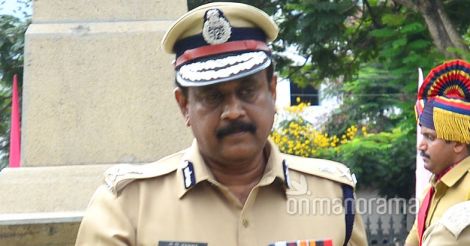The legal battle between the Kerala government and former police chief T.P. Senkumar had come to an end with the April 24 order to reinstate the officer. The Supreme Court had unequivocally said that Senkumar had to be reappointed as the police chief.
The government, however, went back to the court seeking clarity in the verdict and a possible review which has already been dismissed. Senkumar has filed a contempt of court petition against the state chief secretary for failing to implement the court order.
The government argues that it was helpless to reappoint Senkumar as the police chief as directed by the court. The police chief is selected by a committee formed under section 18 of the Kerala Police Act, the government reasons.
This argument evokes memories of another case from Karnataka in 1995. The T.R. Dhananjaya vs J. Vasudevan case led to the sentencing of Vasudevan, a senior bureaucrat, to imprisonment for a month for contempt of court. The Supreme Court condemned the efforts to deny the petitioner benefits instead of implementing the court order. The court said it cannot allow the efforts to overcome the court order by citing rules.
There may be situations when a court order affects citizens’ rights or the state’s revenue. Judicial activity may overlap those of the other branches of government. In those instances, the government may seek measures to overcome the judgment. That is clearly laid out in the Constitution.
This case, however, merits none of those remedies. The court has only ordered the government to reinstate an officer who was removed unfairly.
Separation of powers is a basic tenet of the Constitution. The Supreme Court was discharging its constitutional duty when it annulled the high court order in the Senkumar case. The Supreme Court order is applicable to all courts in the country, not just the parties in the case. Article 141 of the Constitution says so. The government is duty-bound to implement the order.
If the government hesitates, the court can initiate contempt of court proceedings. Persons found guilty of contempt could be sentenced to jail.
Civil contempt of court proceedings are intended to safeguard the rule of law. Constitutional bodies have to act in tandem with the spirit of the Constitution. If the government erred in removing the officer, it has to remedy it by reinstating him.
Those who hold constitutional offices should rise above their ego to act with wisdom and maturity. That is essential to sustain democracy and rule of law.
(The writer is a Supreme Court advocate)

























 T.P. Senkumar. Onmanorama/File photo
T.P. Senkumar. Onmanorama/File photo